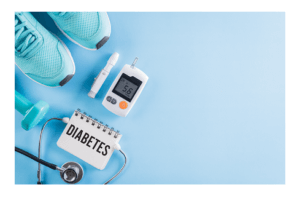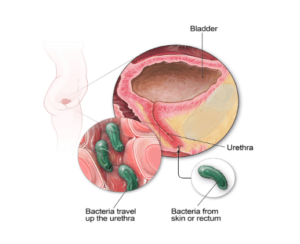Share this blog post with your friends
The TU/E Creatinine Ratio is an important indicator of kidney function. When the ratio is abnormal, it suggests an underlying issue that requires attention. Here are five common causes of abnormal TU/E Creatinine Ratio and steps to address them:
1. Kidney Disease
Chronic kidney disease (CKD) is the most common cause of a high TU/E Creatinine Ratio. Identifying the underlying reason and applying suitable therapies, such as medication, lifestyle modifications, and dietary changes, can aid in kidney health management.
2. Diabetes
Diabetes can impair kidney function, resulting in an abnormal TU/E Creatinine Ratio. Blood sugar levels must be managed with medication, diet, exercise, and regular monitoring to avoid kidney-related problems.

Source: Centres of disease control and infection
3. High Blood Pressure
Uncontrolled high blood pressure can damage the kidneys and impact the TU/E Creatinine Ratio. Maintaining blood pressure within a healthy range through lifestyle modifications, medication, and regular check-ups is vital for kidney health.
4. Urinary Tract Infections
Infections in the urinary tract can temporarily affect the TU/E Creatinine Ratio. Treating infections promptly with antibiotics and maintaining proper hygiene can restore the ratio to normal levels.

5. Medications and Toxins
Certain drugs and pollutants can have an adverse effect on renal function, resulting in an abnormal TU/E Creatinine Ratio. Maintaining kidney health requires reviewing drugs with a healthcare expert and avoiding exposure to dangerous chemicals.
Addressing Abnormal TU/E Creatinine Ratio
Addressing an abnormal TU/E Creatinine Ratio involves identifying and managing the underlying cause. Here are some general strategies to consider:
- Seek Professional Guidance: Consult a healthcare professional to evaluate your specific situation and receive personalized guidance.
- Medication Management: Work closely with your healthcare team to adjust or modify medications that may contribute to the abnormal ratio.
- Adopt a Healthy Lifestyle: Focus on maintaining a balanced diet, engaging in regular exercise, maintaining a healthy weight, and managing stress. These lifestyle changes support kidney health and can help improve the TU/E Creatinine Ratio.

- Control Blood Pressure and Blood Sugar: If high blood pressure or diabetes is a factor, diligently manage these conditions through medication, dietary choices, exercise, and regular monitoring.
- Regular Monitoring: Follow the recommended schedule for monitoring kidney function, including the TU/E Creatinine Ratio. This enables tracking progress and prompt intervention if needed.
Certain medicines and contaminants can impair renal function, leading to an inappropriate TU/E Creatinine Ratio. Maintaining kidney health necessitates discussing medications with a healthcare professional and avoiding exposure to hazardous substances.
Conclusion:
A high TU/E Creatinine Ratio indicates that you may have renal problems. You may address the underlying problems and enhance kidney health by identifying the common causes and adopting suitable steps. To protect your entire well-being, consult with healthcare specialists, make required lifestyle modifications, and stick to frequent monitoring. Consider kidney health to be an important component of your overall health and energy.
